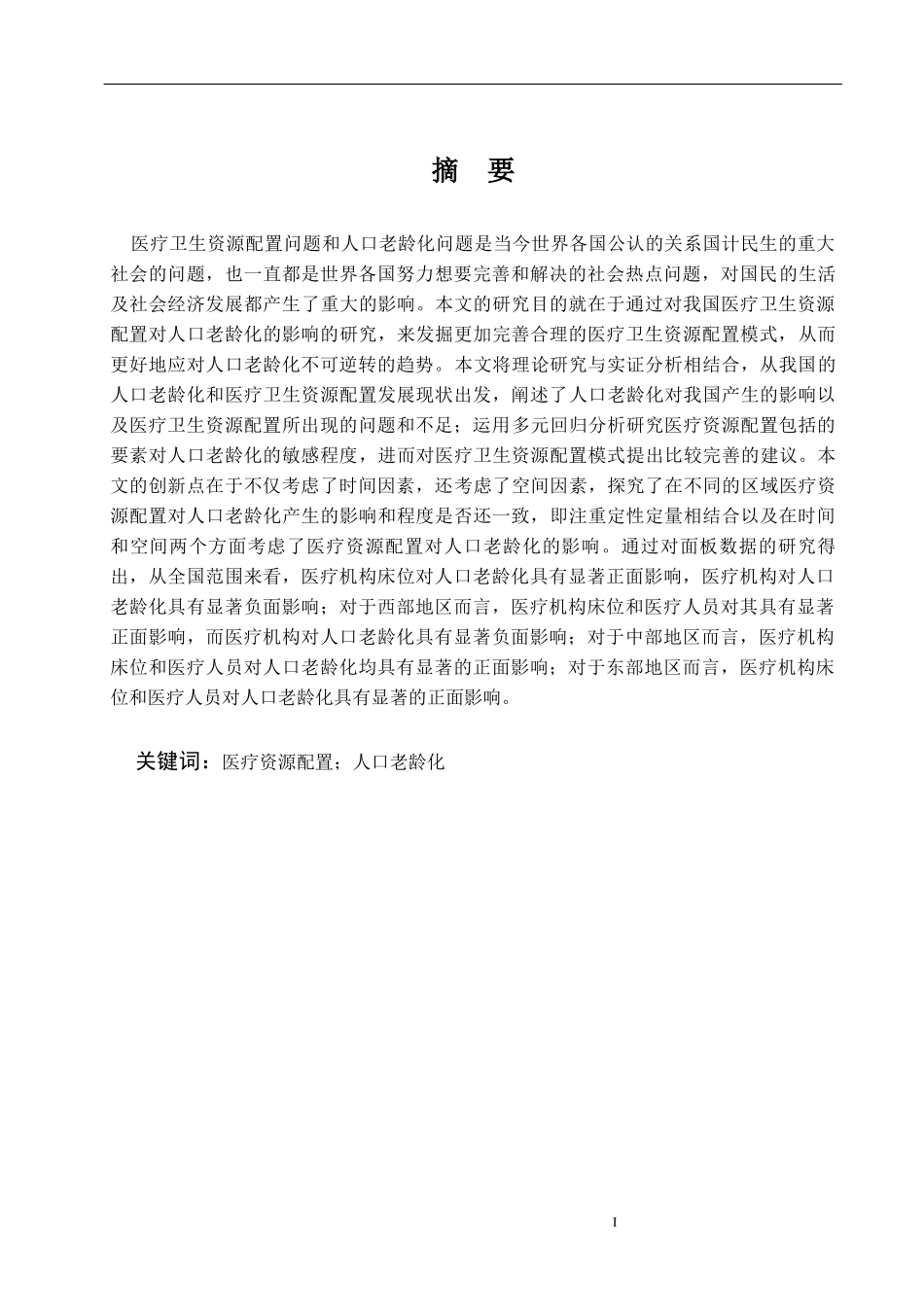I 摘 要 医疗卫生资源配置问题和人口老龄化问题是当今世界各国公认的关系国计民生的重大社会的问题,也一直都是世界各国努力想要完善和解决的社会热点问题,对国民的生活及社会经济发展都产生了重大的影响。本文的研究目的就在于通过对我国医疗卫生资源配置对人口老龄化的影响的研究,来发掘更加完善合理的医疗卫生资源配置模式,从而更好地应对人口老龄化不可逆转的趋势。本文将理论研究与实证分析相结合,从我国的人口老龄化和医疗卫生资源配置发展现状出发,阐述了人口老龄化对我国产生的影响以及医疗卫生资源配置所出现的问题和不足;运用多元回归分析研究医疗资源配置包括的要素对人口老龄化的敏感程度,进而对医疗卫生资源配置模式提出比较完善的建议。本文的创新点在于不仅考虑了时间因素,还考虑了空间因素,探究了在不同的区域医疗资源配置对人口老龄化产生的影响和程度是否还一致,即注重定性定量相结合以及在时间和空间两个方面考虑了医疗资源配置对人口老龄化的影响。通过对面板数据的研究得出,从全国范围来看,医疗机构床位对人口老龄化具有显著正面影响,医疗机构对人口老龄化具有显著负面影响;对于西部地区而言,医疗机构床位和医疗人员对其具有显著正面影响,而医疗机构对人口老龄化具有显著负面影响;对于中部地区而言,医疗机构床位和医疗人员对人口老龄化均具有显著的正面影响;对于东部地区而言,医疗机构床位和医疗人员对人口老龄化具有显著的正面影响。 关键词:医疗资源配置;人口老龄化II AbstractThe allocation of medical and health resources and the aging of population are the major social problems that are recognized by all countries in the world, which are related to the national economy and people's livelihood. The purpose of this paper is to explore a more perfect and reasonable mode of medical and health resource allocation through the research on the influence of medical and health resource allocation on population aging in China, so as to better cope with the irreversible trend of population aging. Combining theoretical research with empirical analysis, this paper expounds the influence of population aging on China and the problems ...


